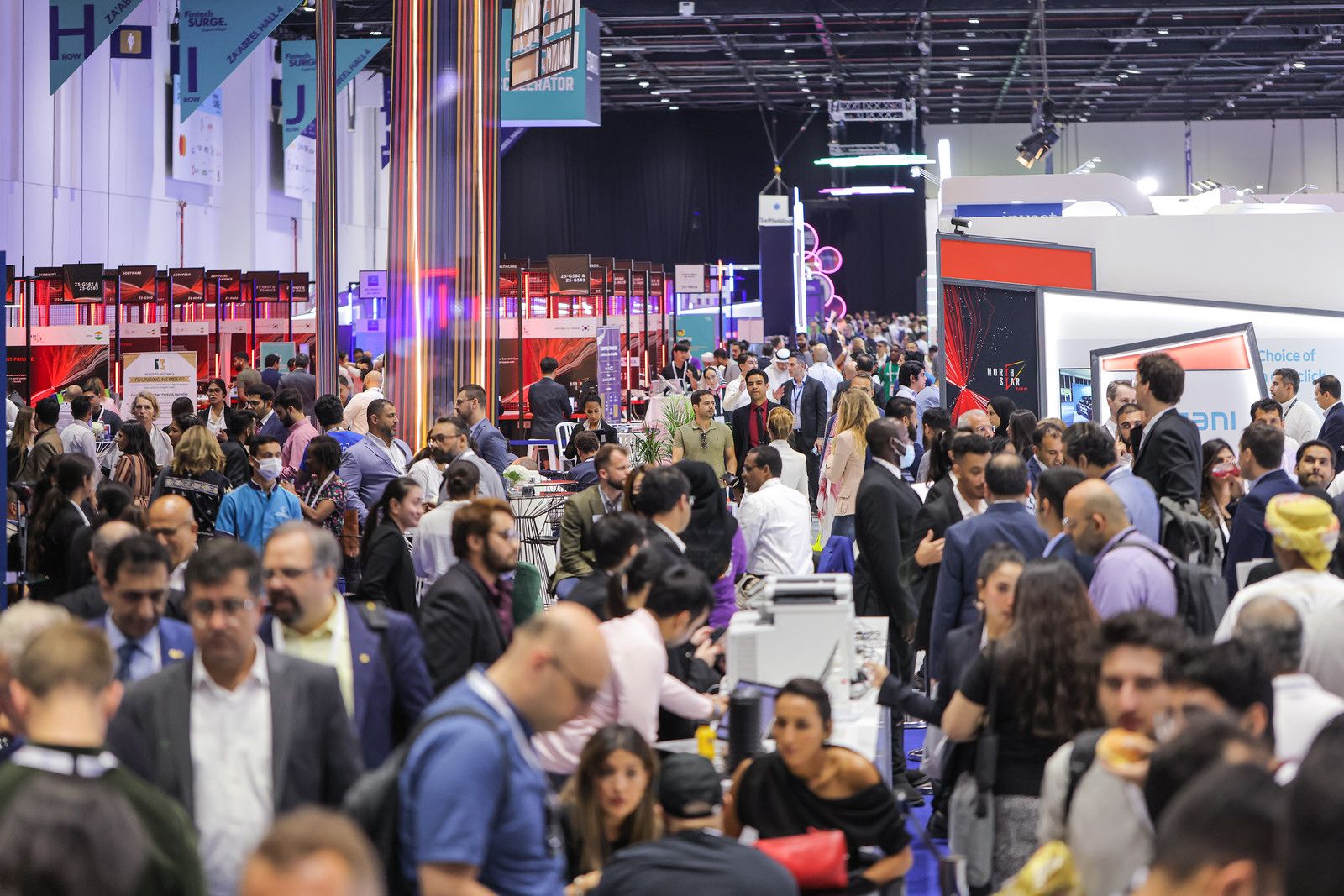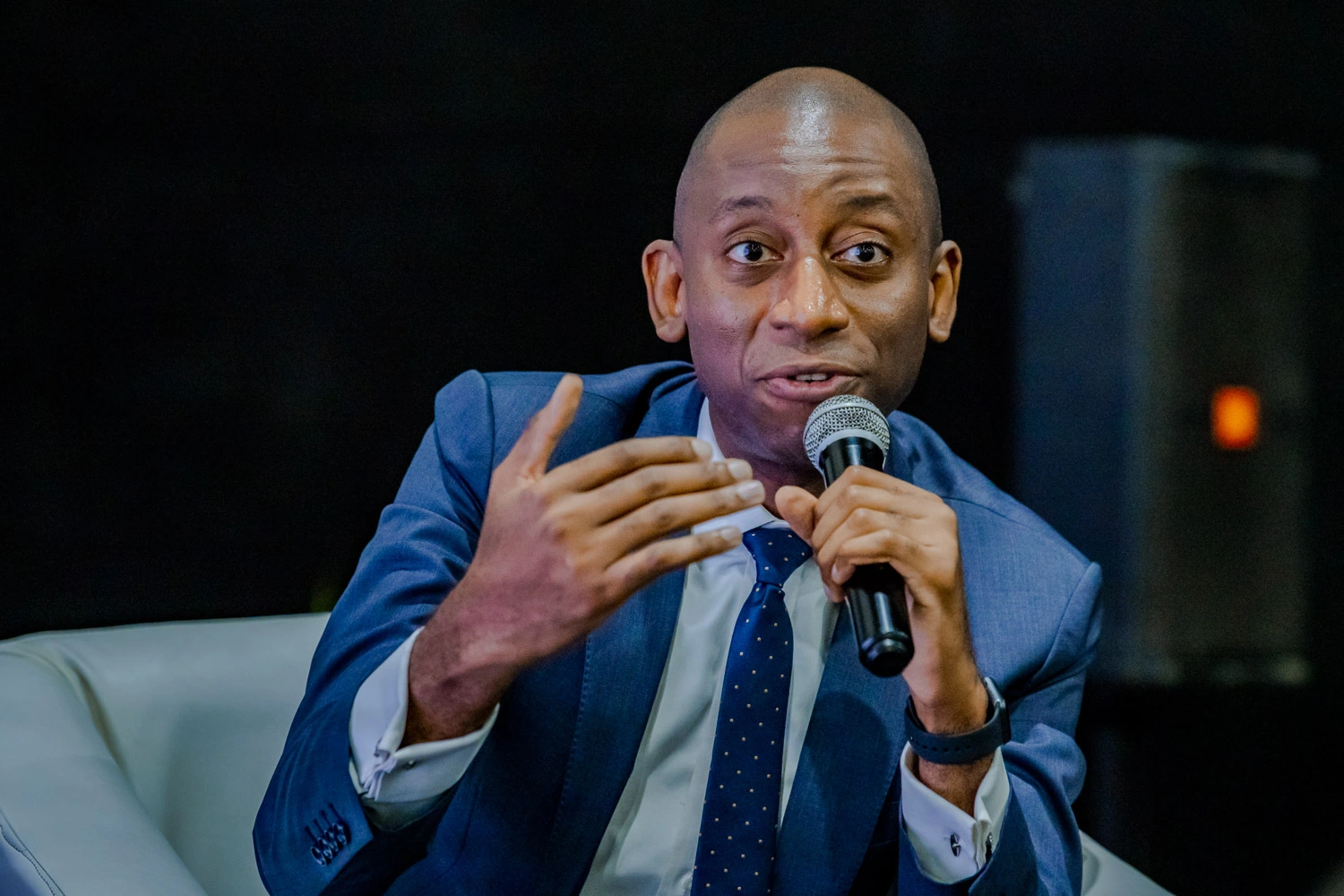Dubai’s GITEX entered its 42nd year as a globally renowned tech conference and tradeshow. Earlier this year the first overseas version debuted in Morocco in North Africa, and an even bigger return is planned for May 2024. But to have a stake in Africa’s technology ecosystem and a potential $180 billion digital economy) the UAE will need to do more than tradeshows.
For many years, it was called GITEX Technology Week or simply GITEX Dubai. After 42 years, the iconic technology tradeshow, like the country which hosts it, is no longer content with being a regional technology powerhouse. While Kaoun International (Arabic for “Universe”), a newly formed event management company tests new markets, a deeper engagement strategy seems to be missing, especially for growing technology markets in emerging economies.
After co-hosting the first overseas GITEX in Marrakech earlier this year, organisers of the 42-year-old GITEX tradeshow announced the launch of preparations for a European version at this year’s edition of GITEX in Dubai. The first GITEX Berlin is being organised in partnership with Messe Berlin, a German events management company and is scheduled for May 2025.
To put the spotlight on technology innovation, the organisers of GITEX have expanded its selection of co-located events. At this year’s startup and investor-focused program, Expand NorthStar (formerly called Northstar Dubai) several African startups found space for themselves. Nigeria’s social commerce startup, Gifty, was the only African finalist at Supernova, the Expand Northstar pitch competition. It also picked up the Africa Fast category award plus an $8,000 cash prize. But beyond events and pitch competitions, it is not clear how the UAE intends to turn these annual sessions into value for its ambitions.
For North Africa and the rest of the continent, GITEX Africa which debuted in Marrakech last May is the primary event through which the UAE’s government hopes to endear itself to technology players in Africa (and its Moroccan government partners). Organised in partnership with Morocco’s Digital Development Agency (ADD), GITEX Africa was the first version of the tradeshow organised outside Dubai. Kaoun International is also planning a yet-to-be-announced series of smaller events in key cities throughout Africa, TechCabal learned. At the same time, roadshows from African investors hoping to raise capital from the region’s wealthy are having variable success.
An untapped opportunity
When the first Gulf Information Technology Exhibition was held in 1981, Dubai was not the global travel destination it has since become. But it was already becoming an important sales hub to reach the Middle Eastern region.
Recently, as the conversation around renewables gained momentum and public purses swelled with windfall profits on fossil fuel sales, the United Arab Emirates alongside its Gulf neighbours, Saudi Arabia and Qatar announced similar economic diversification agendas. Public agency videos preach the virtues of each country’s vision for a technology-based economy. And public fund managers like Mubadala Investment Company, Qatar Investment Authority (QIA), and Saudi Arabia’s Public Investment Fund (PIF), have become important sources of capital for global investment firms. Saudi Arabia’s PIF investment in Softbank’s Vision Fund is perhaps one of the more notable examples.
Perhaps nothing captures this fascination with technology more than Neom, the 26,500km2 high-tech city championed by Saudi Crown Prince and Prime Minister, Mohammed bin Salman Al Saud.
The state-owned investors of Saudi Arabia, Qatar and the UAE collectively control more than $4 trillion in assets according to tracker, GlobalSWF. All three countries have ambitions to become the region’s technology powerhouse as well as be recognised as significant players on the global scene. Mubadala, QIA, and PIF have made large investments into Western technology firms either directly or as LPs in Western VC funds. Investments made in African companies on the other hand typically focus on traditional industries or as part of government aid. Due to their historic links, much of those investments are concentrated in North Africa.
By expanding its leading technology tradeshow to Africa through a partnership with one of its long-time allies (Morocco), the UAE is demonstrating the contours of a still cautious African strategy. Outside of technology, the UAE is more aggressive. The mostly state-owned port operator and shipping company, DP World for example has signed port management deals with several African countries.
GITEX was originally a technology trade show that focused on consumer gadgets and hardware. While it still retains some of this hardware focus, it has evolved to incorporate the software solution market. This tracks with much of how the technology ecosystem evolved following the boom years of Software-as-a-Service businesses. More crucially though, GITEX retains much of the sales discovery event design that helped solidify the UAE’s position as a leading technology sales hub.
An overly cautious and mostly North African corridor to Africa’s technology opportunity based on packed schedules at a tradeshow falls short of what younger technology ecosystems need. Events are events and the jury is still out on how much of an influence a technology tradeshow has on helping to create thriving technology ecosystems.
Dubai has become a leading financial and business facilitation centre for Africa’s wealthy. It is also attracting technology talent from Africa. Some African technology companies primarily serving North African countries like Egypt or West African markets like Nigeria have their headquarters in the city. During the recently concluded GITEX Global, Nigeria’s Paystack and the UAE-Africa Networking Group held separate events for the African technology entrepreneurs in the city for GITEX. Despite the enthusiasm on the part of African entrepreneurs, what was conspicuously missing was the presence of local players.
A windfall from oil revenues has made Gulf countries important financiers globally, drawing attention from Silicon Valley fund managers. In today’s funding crunch where local African VCs are struggling to find capital partners, the opportunity for countries with big tech hub ambitions like the UAE to play a bigger role in Africa’s technology ecosystem could not be greater.



















